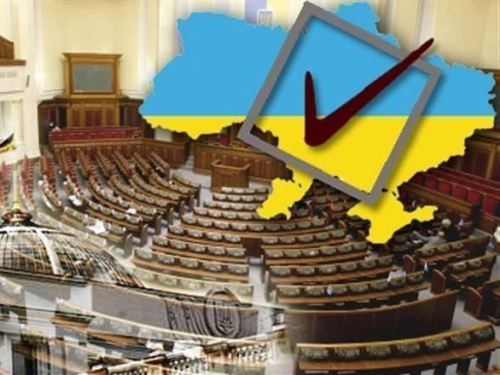Poland and Germany were both initiators and drivers of a New Eastern policy linked to the Eastern neighborhood and Russia/Soviet Union.
Serhiy Datsyuk: Most of the experts are satisfied with the results of the parliamentary election

Presidential forces didn’t form a monopoly in the Ukrainian parliament. Petro Poroshenko had to propose coalition to the Popular Front, which means that Arseniy Yatsenyuk is to become Prime Minister.
On October 26 early parliamentary election were held in Ukraine, bringing no particular surprises.
According to the results of 87,12% processed e-protocols (when this material was being prepared), a five-per cent barrier was surmounted by the following parties: the Popular Front was supported by 22,10% of the voters, the Petro Poroshenko Bloc had 21,70%, Samopomich Party had 10,92%, the Opposition Bloc 9,42%, the Radical Party 7,48%, and Batkivshchyna Party 5,70%.
Were these results predictable or unexpected?
Ukrainian political expert Serhiy Datsyuk answered the questions of EuroBelarus Information Service.
— The results of the election brought no surprise. We can only talk about some nuances that came as a surprise. The Communist Party didn’t pass to the Verkhovna Rada; and predictably, the Party of Regions isn’t present in the parliament in its original form and didn’t take part in the election.
The intrigue of the parliamentary election was about whether the Bloc of Poroshenko would manage to reach at least 40% in parliament and form a parliamentary majority, i.e. to form a monopoly in Verkhovna Rada. In result the Petro Poroshenko Bloc and the Popular Front took a little more than 20% each.
Sociologists assumed that Strong Ukraine Party would be present in the parliament but it didn’t get enough votes.
The intrigue also concerned Batkivshchyna Party, as according to the exit polls, it was getting much more votes; however, according to the latest data, it hardly surmounted a five-per cent threshold.
All in all, most of the experts are satisfied with the results of the parliamentary election: the presidential forces didn’t become a monopoly in the parliament.
— Why is it good?
— Otherwise the principle of separation of powers would be violated. The pro-presidential majority in the Verkhovna Rada existed since the time when the second President was elected; Yushchenko to say nothing of Yanukovych had majority in the parliament. The monopoly of the president in the parliament would destroy the separation of powers. Parliament would be working by president’s order, which would have catastrophic consequences for the country.
— Did the leadership of the Popular Front of Arseniy Yatsenyuk come as a surprise?
— There are no surprises: from the moment of the party’s creation till the election its rate was growing; if the Popular Front would have more time, I think it would have got much more votes and its gap with the Petro Poroshenko Bloc would be more impressive.
Unlike the Petro Poroshenko Bloc that advocates peaceful settlement of conflict in Donbas, the Popular Front is a party of hawks that advocates immediate release of Ukraine.
— In the negotiation regarding the coalition main players, such as the Petro Poroshenko Bloc, the Popular Front, and Maidan parties: Samopomich, Batkivshchyna, Svoboda are taking part. Will Petro Poroshenko be able to form majority in the parliament?
— All parties to the election but for the Opposition Bloc are invited to take part in the negotiations. The question is who will be willing to enter the coalition.
At the press conference Petro Poroshenko said that he stayed loyal to reforms and quota principle won’t be working. But quotes are inevitable in politics: someone loses and someone wins.
— How do you see the configuration of political forces in the Verkhovna Rada?
— It seems to me that the President is compelled to propose coalition to the Popular Front, which means that Arseniy Yatsenyuk is likely to become Prime Minister. Oleksandr Turchynov’s chances to remain the parliamentary speaker are 50 to 50. And it is around blocking these two forces that the main intrigue will be developing.
— How will election influence the situation in Donbas?
— New parliament that would be able to adopt new Constitution and would have enough authority to vote for unpopular but vital laws is required. If it happens, the situation in Donbas would be cardinally changed.
Others
-
Uladzimir Matskevich: The sooner the "Union State" is denounced, the better for Belarus
Not only does the “Union State” undermine the establishment of civilized relations with Europe, but it hinders the possibility of normal relations between Belarus and Russia.
-
Uladzimir Matskevich: The regime can no longer control the situation in the country
The authorities are unable to prolong the social contract with the people: there is no way out of the social crisis.
-
Press release of the BNP in connection with the next round of the dialogue in the format of the EU-Belarus Coordination Group
Belarusan National Platform of the Eastern Partnership Civil Society Forum welcomes the dialogue process in the format of the EU-Belarus Coordination Group, the third round of which was held in Minsk on 3-4 April 2017.
-
Hennadiy Maksak: Europe must react adequately to the events in Minsk
A new wave of political repressions should make the EU return to tougher policy towards the Belarusan regime.








Comments
From farewell to a new Eastern policy and towards a new development
Poland and Germany were both initiators and drivers of a New Eastern policy linked to the Eastern neighborhood and Russia/Soviet Union.